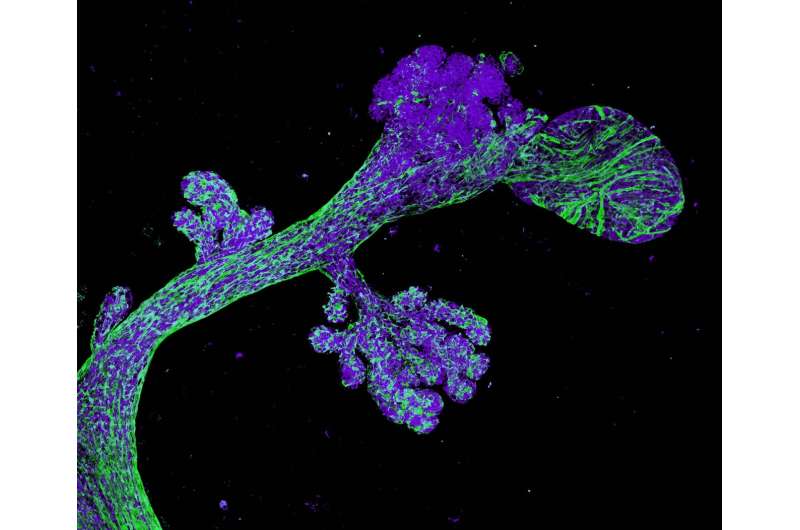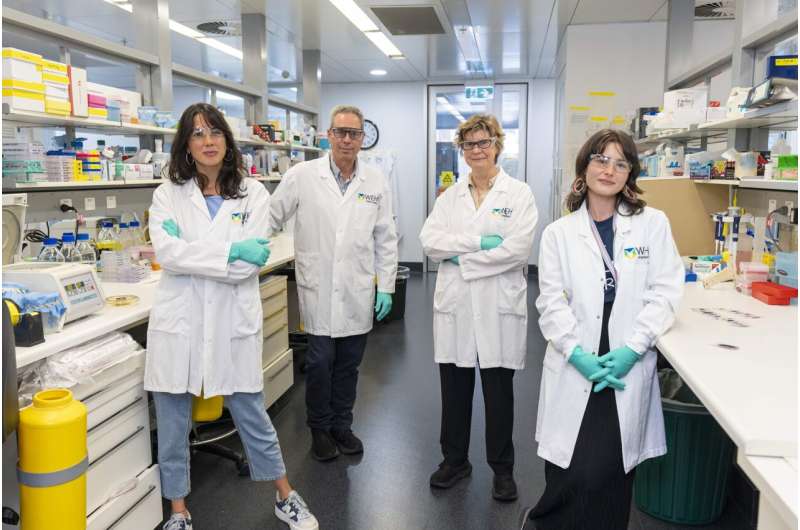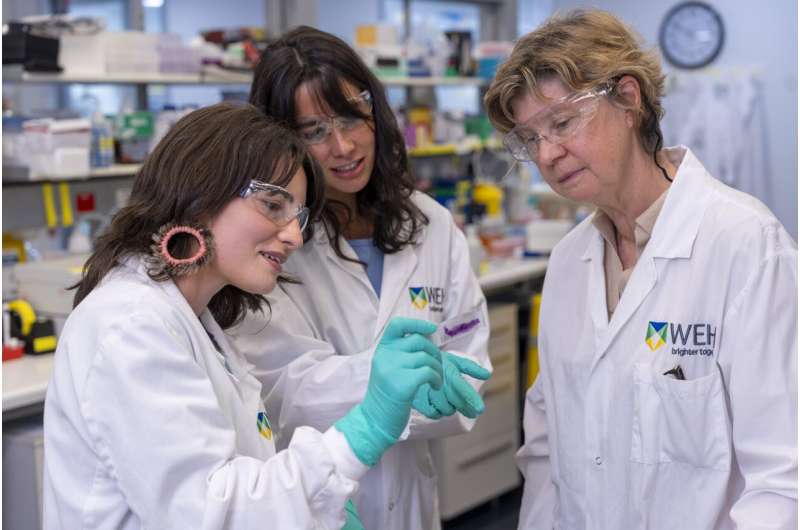This article has been reviewed according to Science X's editorial process and policies. Editors have highlighted the following attributes while ensuring the content's credibility:
fact-checked
peer-reviewed publication
trusted source
proofread
Study pinpoints breast cancer 'cells-of-origin' in high-risk women

Women who inherit and carry a faulty BRCA2 gene have a substantially increased risk of developing breast cancer—approximately 70% of carriers will develop the disease over their lifetime.
These cancers often occur at a young age and can be clinically aggressive. Early screening is encouraged and some women undertake preventive breast surgery (mastectomy) to reduce their breast cancer risk.
In a milestone finding published in Nature Cell Biology, researchers from the Walter and Eliza Hall Institute (WEHI) have discovered the likely "cells-of-origin" of cancer in BRCA2 carriers. By comparing cancer-free tissue samples from both carriers and non-carriers, they identified an aberrant population of cells that divide more quickly.
Study joint first author Dr. Rachel Joyce said this perturbed cell population was found in the majority of tissue samples from women with a faulty BRCA2 gene.
"Given they were found in most of the BRCA2 tissue samples from healthy females, we believe these may be the cells-of-origin that lead to future breast cancers in women that carry the BRCA2 mutation," Dr. Joyce said.

Treatment targets
The aberrant cells in BRCA2 tissue, a subset of breast ductal cells called luminal progenitor cells, stood out to the scientific team because they displayed altered protein production, which is critical for the correct growth and functioning of tissues in our bodies.
"These changes may also make the cells more vulnerable to certain therapies aimed at preventing or delaying breast cancer development," said study joint first author Dr. Rosa Pascual.
Lead author Professor Jane Visvader said the team developed a pre-clinical BRCA2 model that showed similar alterations in the ductal cells, and targeted them with the existing cancer drug everolimus, which is approved to treat patients with relapsed breast cancer.
"Through pinpointing this vulnerability in protein production, we were able to show that pre-treatment with this drug delayed the formation of tumors in the pre-clinical model," said Prof Visvader, joint head of the ACRF Cancer Biology and Stem Cells Division and the Breast Cancer Laboratory at WEHI.
"This raises the possibility that targeting specific aspects of protein production in this way could represent a new breast cancer prevention strategy for women with a faulty BRCA2 gene."
Towards prevention
The findings are an important first step towards the goal of preventative treatments for breast cancer in BRCA2-mutation carriers.
Study author and cancer clinician Professor Geoff Lindeman said that while the findings were exciting, more work was needed before they could be applied in the clinic.

"While everolimus did delay tumor development in the lab, this drug can have side-effects, which might limit its capacity to be used as a preventative treatment," said Prof Lindeman, joint head of the ACRF Cancer Biology and Stem Cells Division at WEHI, and a medical oncologist at the Royal Melbourne Hospital and Peter MacCallum Cancer Centre.
"Our team want to further explore which specific parts of protein processing are dysregulated, and use this information to develop more selective and tolerable preventative treatments.
"There's still a way to go, but we're a big step closer.
"A few years ago, we identified the likely cells-of-origin for breast cancer in females carrying a fault in the BRCA1 gene, which is also associated with a high risk of developing breast cancer. That research has since led to an international breast cancer prevention study (BRCA-P). We hope that our new findings will now inform future treatment and prevention for women with a faulty BRCA2 gene."
More information: Rachel Joyce et al, Identification of aberrant luminal progenitors and mTORC1 as a potential breast cancer prevention target in BRCA2 mutation carriers, Nature Cell Biology (2024). DOI: 10.1038/s41556-023-01315-5

















